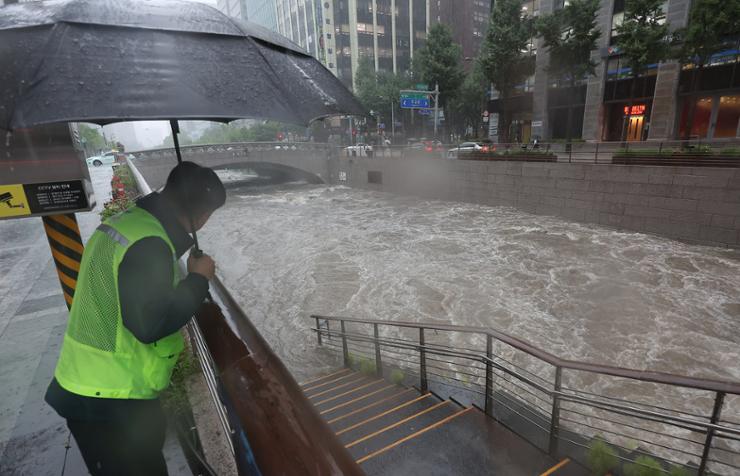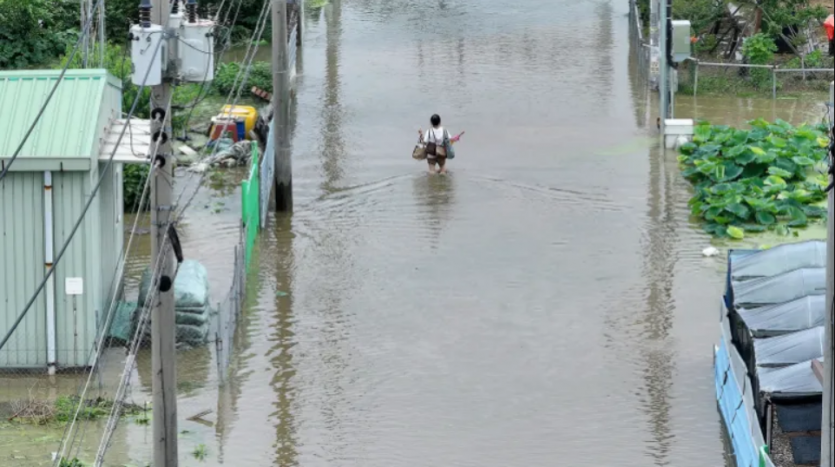Facing South Korea’s Harsh Summer: My Experience with 2024’s Severe We…
페이지 정보

본문
South Korea, especially in recent years, has experienced more severe summer conditions due to global climate change. The summer of 2024 was one of the hottest on record, with temperatures consistently rising above 35°C. The Korea Meteorological Administration (KMA) issued frequent heatwave warnings, urging people to stay indoors, stay hydrated, and avoid outdoor activities during peak sunlight hours. This heat was a shock to me. Although Ethiopia is warm, its high-altitude climate moderates the sun's intensity. In Chuncheon, however, the combination of intense heat and high humidity was oppressive, making daily activities much more challenging.
The past seven months have introduced me to many new experiences, but none as surprising as the extreme weather conditions during the summer of 2024. That summer brought severe heat and unpredictable weather patterns that were much more intense than what I was used to in Ethiopia.
A personal experience that stands out from this summer is the sunburn I suffered in July 2024. Before coming to South Korea, I had never experienced sunburn. But after spending a few hours outside without sunscreen, I quickly learned how harsh the UV rays can be here. My skin became red and painful, and I was advised to always apply sunscreen and wear protective clothing. This was a completely new experience for me, and it highlighted just how severe the summer weather in South Korea can be.
Along with the heatwaves, the summer of 2024 was marked by heavy rainfall during the monsoon season, known locally as "jangma." From late June to early August, the country experienced torrential rains, which caused significant flooding in many regions. News outlets frequently reported on the damage caused by these floods, particularly in areas more vulnerable to landslides. While Chuncheon was not severely affected, there were concerns about localized flooding and disruptions caused by the constant downpours.
Adding to the challenges, South Korea was also impacted by Typhoon Khanun in August 2024. The storm brought strong winds and heavy rain to many parts of the country, causing further damage. Chuncheon was spared the worst of it, but the surrounding regions faced significant impacts. The combination of heatwaves, monsoon rains, and typhoons made the summer of 2024 especially difficult for everyone.
These severe weather patterns are a clear sign of how climate change is affecting South Korea. The KMA and other experts have warned that summers like the one in 2024 are likely to become more common. With rising temperatures and more intense storms, the country is adapting to these changes with public awareness campaigns and efforts to mitigate the effects of climate change.
In conclusion, the severe weather I experienced in South Korea during the summer of 2024 has been eye-opening. From suffering sunburn for the first time to navigating the challenges of heatwaves and monsoon rains, this summer has taught me the importance of being prepared for extreme weather. While these conditions were new and difficult, they also gave me a deeper understanding of how climate change is affecting the world around us.
관련링크
- PrevExperiencing "Gyeongbokgung Palace" during Chuseok 24.09.24
- NextSummer Never Ended: Record-Breaking Heat and Tropical Nights in September 24.09.20
댓글목록
There are no registered comments.


